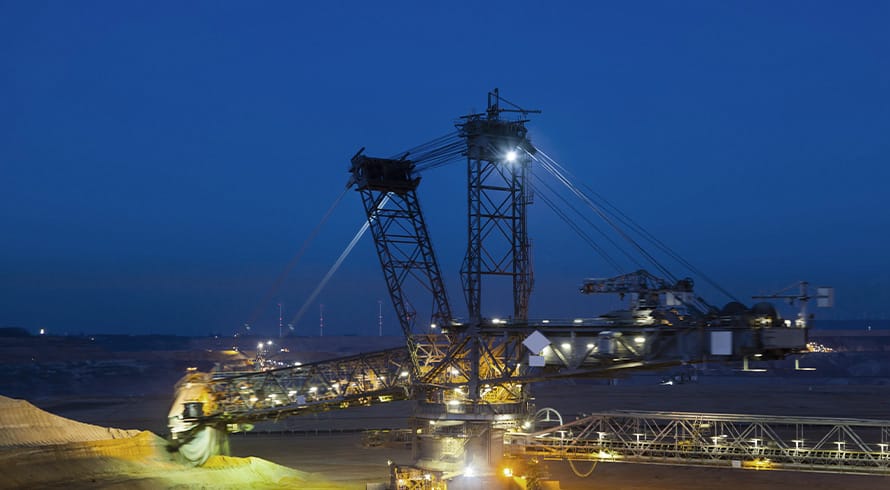Managing country risk for resources and energy projects in Africa
Under the obsolescing balancing model, the initial bargain favours the investor (during exploration and development phase of mining), with the relative bargaining power shifting to the host government as the investors assets mature (developed mine with infrastructure etc), becoming captive to the host government. Mining projects are particularly vulnerable to the risk that once the project cost (usually billions of dollars) is sunk the host government through regulatory measures may impair or extinguish such investment. Generally, resource projects require large upfront capital investment that takes years to recover, with certain mining investments specific to the particular jurisdiction based on a particular mineral deposit (PGMs, cobalt, copper, rare earths etc) to be brought to the market.
The regulatory measures by host governments once the investment cost is sunk has taken on a variety of forms in the recent past. These are usually in the form of: -
- Resources Nationalism and Expropriation;
- Denial, withdrawal, or non-renewal of licences or concessions;
- Increasing the operating conditions (environmental regulations, bans and moratoriums);
- Beneficiation requirement of minerals (value-adding industries)
- National participation requirements (i.e. ownership requirements by the state or nationals of that state);
- Increases of tax or royalties;
- Forced renegotiation of mining agreements;
Real World Examples
Over the past few years, there has been several instances where host governments have used one or more of the regulatory measures to increase its "share" of the "benefits" from mines shortly after establishment. The most recent examples in Africa are:
- The Democratic Republic of Congo ("DRC") government which enacting a new Mining Code increasing royalties on copper from 2% to 3.5%, on gold from 2.5% to 3.5% and could potentially increase royalties on cobalt from 2% to 10%, if deemed a "strategic mineral". The DRC Mining Code also contemplated a new 50% tax on so-called super profits, subject to certain conditions.
- The Tanzania government which enacted various legislatives measures during 2017 and 2018 to give effect to: -
- Its sovereign right to renegotiate terms of contracts with the government deemed as "unconscionable";
- Requirements for state participation in all mining companies (free carry interest vary from 16% to 50% depending on the historical tax benefits granted to such company);
- Local beneficiation requirements with immediate ban on export of unprocessed minerals.
These examples are by no means unique to Africa. Both the developed and developing world are prone to these type of government measures. The most well know examples is probably the Resource Super Profit Tax introduced by the Australian government in 2012 to capture large shares of profits from the coal and iron mining, eventually repealed in 2014 – but not without effort. The Australian approach caused a ripple effect with other jurisdiction from 2011 onwards also proposing or enacting laws for increased taxes or royalties (i.e. Zambia, Chile, Ghana, Canada, Bolivia etc.). As mentioned the most recent example being the DRC.
Further examples include Indonesia government's enacted of laws during 2012 banning the export of certain unprocessed metals and minerals, imposing processing and refining obligations on the mining companies with a penalty of suspension or termination of mining licence of companies failing to comply. South Africa in the Mineral and Petroleum Resources Development Amendment Bill, 2013 ("MPRDA Amendment Bill") also proposed export restrictions on certain minerals that are declared to be "strategic minerals". It would now appear that the MPRDA Amendment Bill containing such provisions will be withdrawn – to create more certainty within the South African mining sector.
Other African countries such as Zimbabwe appear to be changing its way – learning from the negative economic effect of regulatory measures such as national participation requirements and local beneficiation – by adopting a new investment policy which does away with indigenous ownership requirements in respect of most minerals, including the removal of export requirements respect of PGMs, chrome and other minerals.
So, can investors mitigate the risk of government measures?
The resource sector is prone to government measures, as illustrated above. In recognizing the risk associated with investing in the resource and energy sector certain risk mitigation measures are available to mitigate (not exclude) the effect of government action which has the effect of either reducing or extinguishing an investment. These are principally the following mitigation measures available to investors:
- Investment structuring to maximize investment protection available under Bilateral Investment Treaties/Multilateral Investment Treaties;
- Stabilisation and adaption provisions in international mining agreements with the host governments or investment agreements containing stabilisation and adaption provisions;
- Political Risk Insurance.
Investment structuring contemplates that a savvy investor invests through a corporate vehicle from a country providing comprehensive treaty protection in the event of a regulatory measures that has the effect of impairing or extinguishing an investment. In doing so, there are various considerations an investor must have regard to such as, amongst others: a) would the investor be deemed a qualifying investor (i.e. forum shopper), b) would the investment be deemed as a qualifying investment (i.e. legally admitted investment etc), c) the basis for denial of benefits to an investor by the host government under certain circumstances and d) recourse to an effective international arbitration process to enforce rights etc. Any investment structuring must not be done lightly – but requires expert advice from the onset of any proposed investment.
However, investment structuring may in some instances not even be necessary. This is usually the case where the investor has sufficient bargaining power at the inception of the project to be able to convince the host government to conclude an investment agreement containing certain specific guarantees or it could be negotiated as part of the mining agreement under the laws of such particular jurisdiction. In negotiating an investment agreement or a mining agreement it is imperative to ensure that the agreement makes provision of stabilisation provisions having regard to the long duration of any mining project. A mining project in most instances transcends the political term of any elected government – so there must be adequate protection measures to avoid or mitigate against the risk of any new government revoking the agreement. Not that the new government will not attempt to revoke or revoke such agreement. For the latter government actions, make sure an adequate dispute resolution mechanism is in placed that does not leave the investor vulnerable to only approach the state's courts for recourse. Most of all ensure that the investment agreement or mining agreement is valid and enforceable – it does not help you to think the agreement is valid and enforceable by merely signing an agreement with a government official. There are prerequisites for any government agreement to be valid and enforceable – here we are talking both from a domestic law and international law perspective.
In addition to both investment treaty protection and potential investment agreements, Political Risk Insurance ("PRI") may generally be available to investors covering them against political risk (which includes non-commercial risk) such as direct and indirect actions by host governments that negatively impact investments and for which the investor is not compensated. PRI covers includes, amongst others: -
- nationalisation or expropriation and similar measures;
- currency convertibility and currency transfers;
- terrorism, sabotage, insurrections etc;
- Repudiation or breach of contract by host government or state-owned entities;
- Arbitral award defaults.
It's important to know and understand what the nature and extent of the different PRI cover – protect your investment against all potential eventualities.
For investors in the resources and energy sector, it is imperative to ensure that its investment is protected against any possible government action. Protecting your investment before the investment cost is sunk makes you a savvy investor – it does not guarantee you against government action that affect your investment – but what it does is a mechanism to mitigate the effect of such government action on your investment. Take expert advice on the practical execution of measures which addresses and limits the risk associated with action by host government through regulatory measures.
The information and material published on this website is provided for general purposes only and does not constitute legal advice. We make every effort to ensure that the content is updated regularly and to offer the most current and accurate information. Please consult one of our lawyers on any specific legal problem or matter. We accept no responsibility for any loss or damage, whether direct or consequential, which may arise from reliance on the information contained in these pages. Please refer to our full terms and conditions. Copyright © 2026 Cliffe Dekker Hofmeyr. All rights reserved. For permission to reproduce an article or publication, please contact us cliffedekkerhofmeyr@cdhlegal.com.
Subscribe
We support our clients’ strategic and operational needs by offering innovative, integrated and high quality thought leadership. To stay up to date on the latest legal developments that may potentially impact your business, subscribe to our alerts, seminar and webinar invitations.
Subscribe




